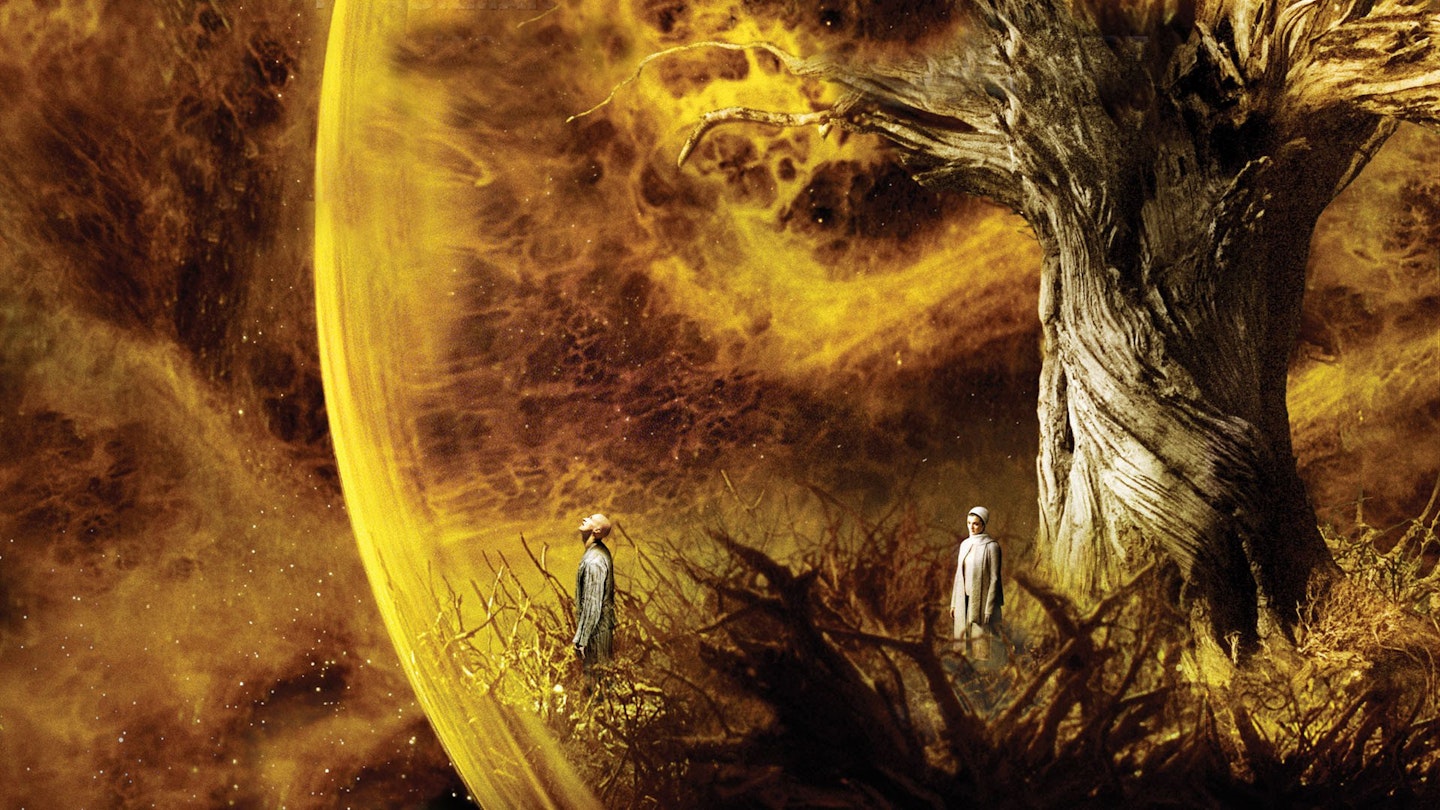Darren Aronofsky’s third film, like his first two, has divided people — to put it mildly. Booed at the Venice Film Festival by critics, ignored by American audiences and slated by the press, it’s gathered the sort of reviews normally associated with Martin Lawrence movies.* The Guardian* called it “time-travelling kabbalistic balderdash”; The New Yorker a “gorgeous nimbus of confusion” — and those are two of the kinder assessments. US audiences, meanwhile, complained that the three-pronged plot was confusing, the visuals dizzying and the moral obscure. And they’re all probably right. But that’s only half the story. Among those few hardy souls who did go to see it, it has won fans — becoming more popular rather than less as it disappears from US screens. These few, these happy few, enjoy every confusing, dizzying, obscure minute of it — and they’re right, too. Because this simple fable about love and death makes a virtue of its flaws and emerges as one of the most moving and thought-provoking films of the year.
The story takes place in three time periods over the span of a millennium. As the plot twists from 16th century Spain and Mayan Mexico, to the present day and a medical lab, to a bubble ship flying across the galaxy with the Tree Of Life inside, it’s clear that accessibility was not a high priority.
The exact nature of these three threads — which are reality and which fantasy — is going to cause endless debate. For what it’s worth, the historical section is framed as extracts from a book that Izzi (Rachel Weisz) has written, while the space section may be a dream of a possible future. Or it might be three stories about two souls entwined across time. But then, those arguments are probably the point, and in any case a distraction from the meat of the story. All three are gorgeously conceived and shot, linked through the colours of brown, green and (especially) gold — the colours of the jungle, the surgical theatre and a million stars. It leaves the impression of having been entirely shot in soft focus, so lovingly does the light linger on the perfect features of its stars and special effects dreamscapes.
Jackman’s Tomas/Tommy/Tom is undoubtedly the performance of his career to date, making use of all that natural charisma but stripping him of the usual safety net of his affability and charm. This is a driven man, waging a lone and desperate war against death itself, struggling through all the storms of grief — denial, anger, bargaining and despair — when his dying wife has already reached the calm seas of acceptance. His surname, “Creo”, means “I believe” in Spanish, and is perhaps a clue to his fate, because it certainly isn’t a description of his struggle, unless it’s short for “I believe I can cheat death”.
The only other major character is Weisz’s Izzi, a love object bathed in a pearlescent glow that most healthy people, never mind cancer sufferers, can only dream of. Izzi could have been a one-dimensional saint, but Weisz’s immense intelligence and compassion give her a weight and humour that centres the film, even as Tommy’s orbit around her becomes ever more eccentric. It’s tempting, in fact, to see Weisz’s influence even beyond the confines of the screen, in her husband Aronofsky’s newfound empathy as a filmmaker — the film could be read as a love letter to his wife.
There’s no question that this represents a big step forward for Aronofsky, after the cold intellectualism of Pi and the grim excess of Requiem For A Dream. There’s a Zen philosophy at its heart — the idea that acceptance is the only way to defeat death, and that fighting to keep the thing you love can destroy it — that is very un-Hollywood and probably un-American to boot, but sufficiently fascinating to keep viewers enthralled from Mayan temples to space nebulae. It isn’t perfect by any means — an occasionally clanging line of dialogue intrudes, and there’s some wilful weirdness in the future scenes in particular — but it’s one that’s destined to grow on you the more you think about it. Not complex, perhaps, but profound.


